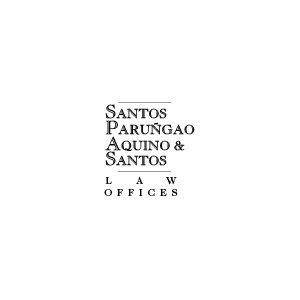Best Debt Capital Markets Lawyers in Pasig
Share your needs with us, get contacted by law firms.
Free. Takes 2 min.
List of the best lawyers in Pasig, Philippines
About Debt Capital Markets Law in Pasig, Philippines
Debt Capital Markets (DCM) refer to the environment where long-term debt instruments, such as bonds and notes, are issued and traded. In Pasig, Philippines, DCM law governs how corporations, financial institutions, and government entities raise funds through the issuance of debt securities. This area of law guides the legal structuring, issuance, and trading of these securities within local and international markets. Pasig, a vital business hub within Metro Manila, is home to major banks and financial institutions, making DCM activities significant to its corporate landscape.
Why You May Need a Lawyer
Legal assistance is crucial for anyone engaged in Debt Capital Markets in Pasig due to the high level of regulatory oversight and the complexity of transactions involved. You may need a lawyer if you are:
- Issuing debt securities as a company or government agency
- Investing in bonds or other fixed-income securities
- Negotiating terms and conditions in debt agreements
- Ensuring compliance with Securities and Exchange Commission (SEC) and Bangko Sentral ng Pilipinas (BSP) regulations
- Handling disputes related to the issuance or trading of debt securities
- Restructuring corporate or sovereign debt
- Dealing with cross-border debt transactions or foreign investors
Local Laws Overview
Several laws and regulations govern Debt Capital Markets in Pasig, Philippines. Key legal frameworks include:
- Securities Regulation Code (RA No. 8799) - Lays down the rules for issuing, selling, and trading debt securities, and the registration requirements with the SEC.
- Corporate Code of the Philippines - Addresses the authority and process for Philippine corporations to incur debt and issue securities.
- Bangko Sentral ng Pilipinas (BSP) Regulations - Governs the participation of banks and banking institutions in DCM activities, especially for raising capital and reserve requirements.
- Philippine Dealing and Exchange Corp (PDEx) Rules - Sets out procedures for listing and trading fixed income securities in the local market.
- Foreign Investment Act - Provides guidelines for non-Filipinos wishing to participate in the domestic debt market.
- Tax Laws - Imposes tax implications on interest income and capital gains, which are critical in structuring debt offerings.
Frequently Asked Questions
What are examples of debt securities issued in Pasig, Philippines?
Typical debt securities include corporate bonds, government bonds, commercial papers, and notes issued by large corporations or government bodies for fundraising purposes.
Who regulates Debt Capital Markets in Pasig?
The Philippine Securities and Exchange Commission (SEC) and Bangko Sentral ng Pilipinas (BSP) are the principal regulators, with the Philippine Dealing and Exchange Corp (PDEx) managing the trading of listed debt instruments.
Is it necessary to register a debt security with the SEC?
Yes, unless a specific exemption applies, issuers must register debt securities with the SEC before offering them to the public.
What disclosures are required when issuing debt securities?
Issuers must provide full, fair, and accurate disclosure of material information, including terms and risks of the securities, company financials, use of proceeds, and risk factors.
Can foreign entities issue debt securities in Pasig?
Foreign entities may issue debt securities in the Philippines, but must comply with SEC registration and other relevant requirements under the Foreign Investment Act and related laws.
Are interest payments on bonds subject to Philippine taxes?
Yes, interest income from Philippine bonds is generally subject to withholding tax. Tax rates and exemptions may apply depending on the investor’s profile.
What is the process of listing debt securities on the local exchange?
Issuers must comply with PDEx listing rules, submit required documents, fulfill compliance standards, and pay applicable fees prior to the listing approval.
How are disputes on debt securities resolved?
Disputes may be resolved through negotiations, arbitration, or litigation. Contract terms, governing law, and venue clauses often dictate the exact process.
What are the risks of participating in Debt Capital Markets?
Risks include credit risk, market volatility, liquidity issues, regulatory changes, and potential default of the issuer. Proper legal and financial advice is essential to manage these risks.
Can individual investors participate in Debt Capital Markets?
Yes, individuals can participate by buying bonds or similar instruments through brokers, banks, or the local exchange, subject to minimum investment amounts and compliance requirements.
Additional Resources
For those seeking more information or assistance related to Debt Capital Markets in Pasig, consider the following resources:
- Philippine Securities and Exchange Commission (SEC) - Regulatory information, company circulars, and registration guides
- Bangko Sentral ng Pilipinas (BSP) - Banking regulations, circulars, and compliance materials
- Philippine Dealing and Exchange Corp (PDEx) - Trading procedures, listing requirements, and market data
- Philippine Stock Exchange (PSE) - Market activity and education on securities trading
- Integrated Bar of the Philippines (IBP) - Directory of qualified legal professionals
- Local law firms specializing in financial markets and securities
Next Steps
If you are considering participating in Debt Capital Markets in Pasig or need advice on transactions, follow these steps:
- Clarify your objectives, whether as an issuer, investor, or advisor.
- Collect all related documents, including financials, business plans, and legal contracts.
- Consult with a lawyer who specializes in securities or capital markets law in Pasig. This ensures you stay compliant and mitigate risks.
- Engage with financial advisors or market experts for structuring and strategy advice.
- Contact relevant regulatory bodies (SEC, BSP) if you need clarification on compliance matters.
- Stay updated with the latest circulars, market guidelines, and tax advisories that may impact your dealings.
Lawzana helps you find the best lawyers and law firms in Pasig through a curated and pre-screened list of qualified legal professionals. Our platform offers rankings and detailed profiles of attorneys and law firms, allowing you to compare based on practice areas, including Debt Capital Markets, experience, and client feedback.
Each profile includes a description of the firm's areas of practice, client reviews, team members and partners, year of establishment, spoken languages, office locations, contact information, social media presence, and any published articles or resources. Most firms on our platform speak English and are experienced in both local and international legal matters.
Get a quote from top-rated law firms in Pasig, Philippines — quickly, securely, and without unnecessary hassle.
Disclaimer:
The information provided on this page is for general informational purposes only and does not constitute legal advice. While we strive to ensure the accuracy and relevance of the content, legal information may change over time, and interpretations of the law can vary. You should always consult with a qualified legal professional for advice specific to your situation.
We disclaim all liability for actions taken or not taken based on the content of this page. If you believe any information is incorrect or outdated, please contact us, and we will review and update it where appropriate.















